Ensign Global College Promotes Safe Work Environments with OHS Workshop

Ensign Global College Promotes Safe Work Environments with OHS Workshop
Environmental and occupational health challenges are a global concern—and West Africa is no exception. The interplay between the well-being and environmental health of the private sector workforce in Ghana is critical for its sustainable development. Both occupational and environmental health challenges affect the overall well-being and productivity of the population. So it was an easy, “Yes,” when Professor Dr. Stephen Alder, president of Ensign Global College in Kpong, Ghana, inquired if I would contribute to a multiday workshop in August 2023 for some of the largest private and public enterprises in the region. In full disclosure, there is a back story here. I am a master of science in public health graduate of the University of Utah where Dr. Alder is also a professor of family and preventive medicine. Yet, I digress.
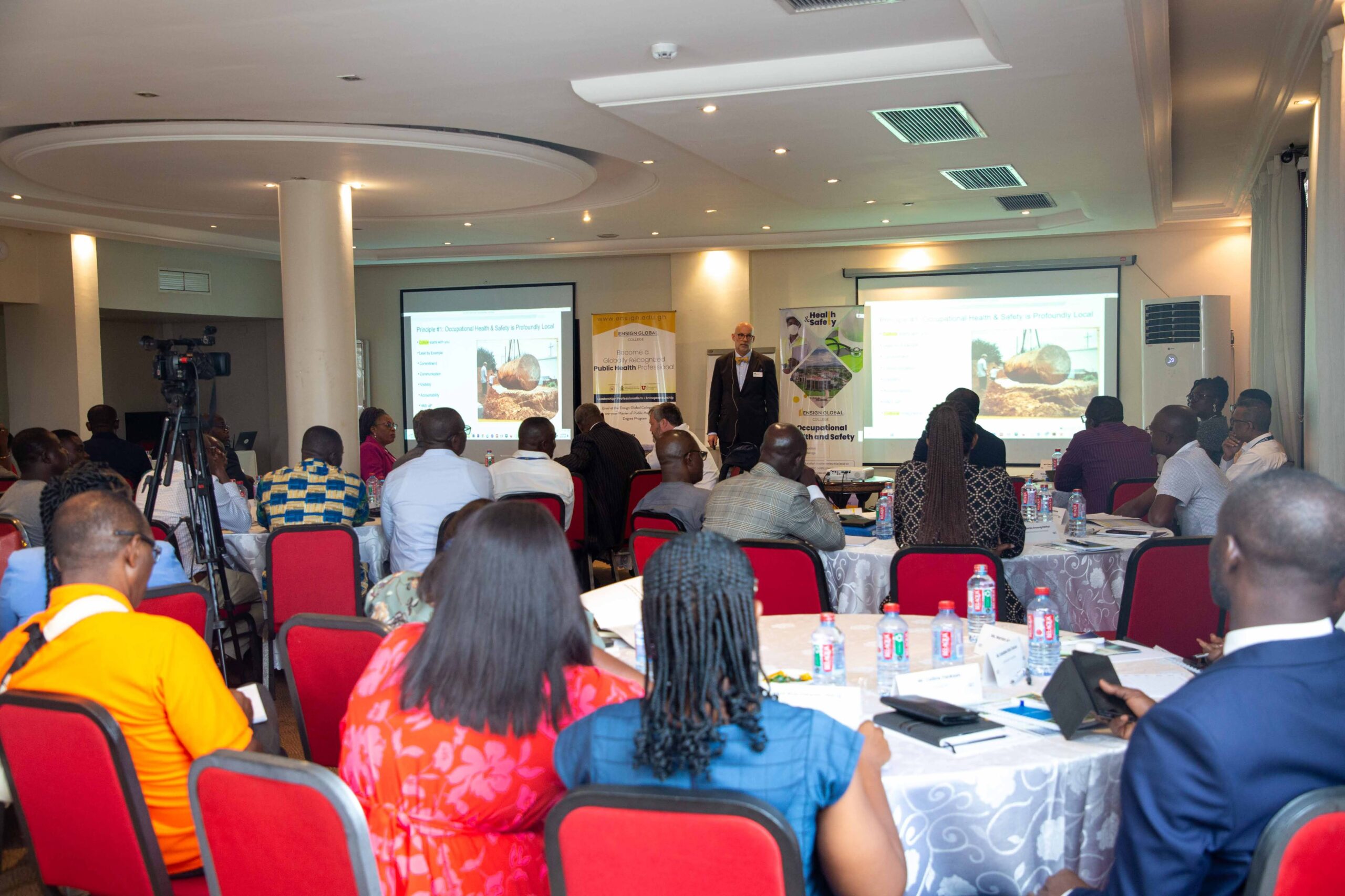
Ensign Global College runs a relatively new public health academic program and seeks to become accredited by the Council on Education for Public Health, the first program to do so in Africa. Board Vice-Chair and Professor Dr. Agyeman Badu Akosa, once the director general of the Ghana Health Service, Dr. Alder, and I anchored the 3-day educational program intended to provide critical energy in support of the launch of a new degree in occupational health.
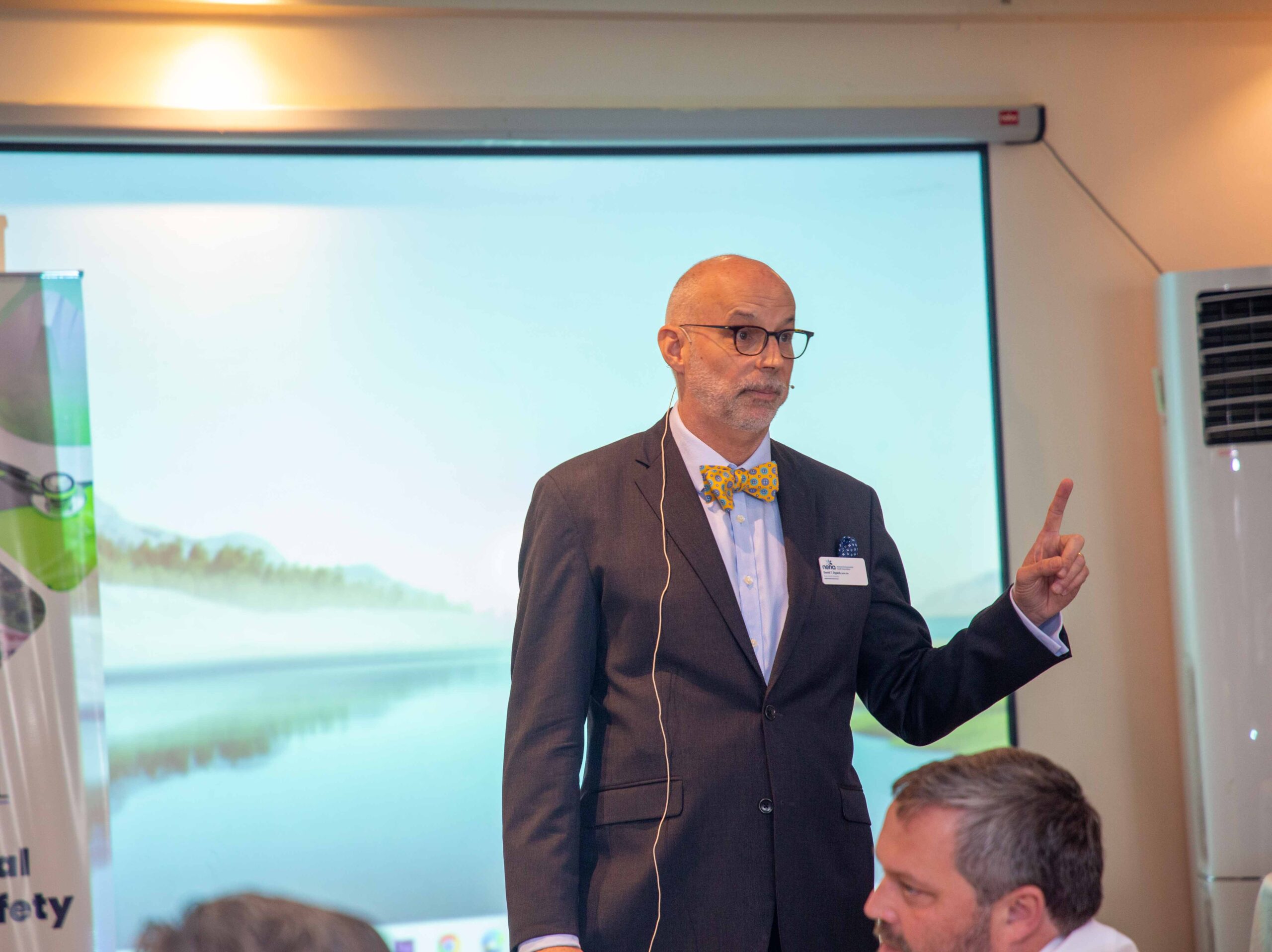
My role was to deliver capacity building in three subjects: leadership, policy, and adult education (i.e., training). Why fly me to Ghana for this work? The country, a large and important one, has abundant natural resources that are the basis for its economy. Cocoa, manganese, gold, petroleum hydrocarbons, fishing, and logging are among the primary industries.
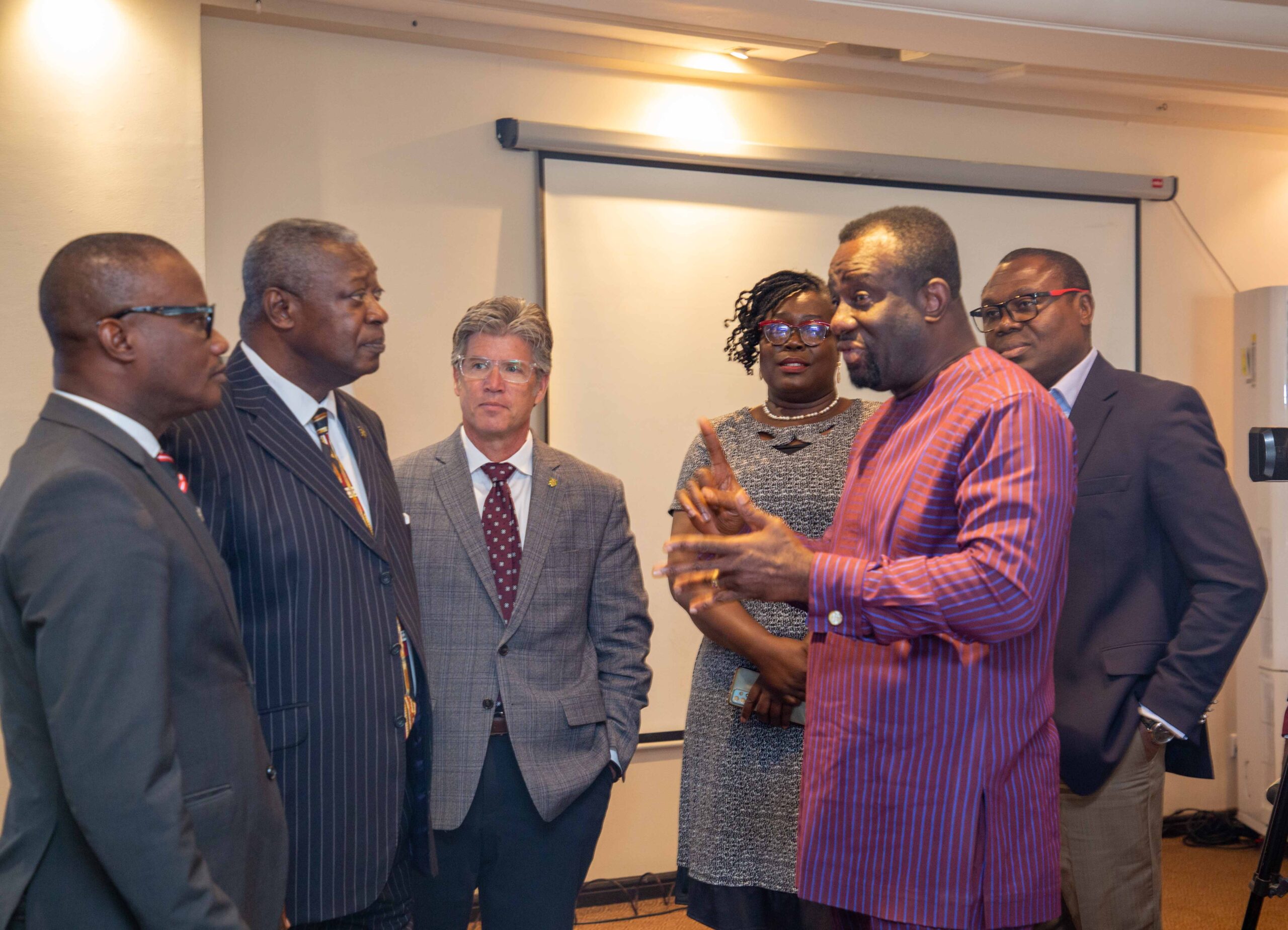
Regretfully, many of these industries are recognized as inherently dangerous and dirty, often conducted in the informal sector where >80% of the workforce secures their livelihood. At the same time, basic principles of environmental and occupational health are generally unknown. It’s worth unpacking some of the issues confronting Ghana.
Occupational Health Challenges
Agriculture Sector
A significant portion of Ghana's population is employed in the agriculture sector, which exposes them to various occupational health hazards. These hazards include exposure to pesticides and fertilizers, which can cause acute and chronic health effects. Workers in this sector often lack appropriate personal protective equipment, leading to an increased risk of accidents and diseases. Musculoskeletal disorders are also common due to repetitive movements and heavy lifting.
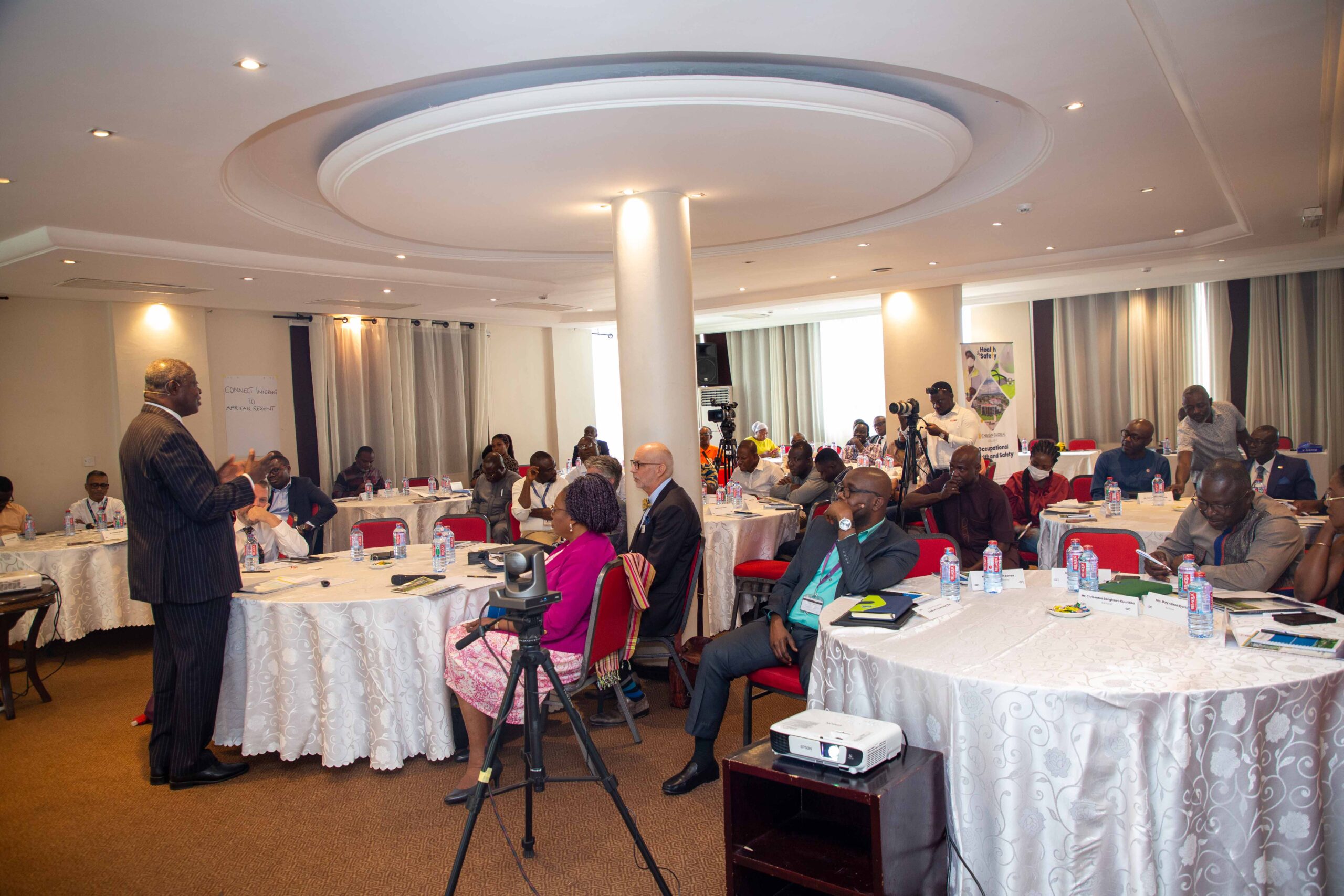
Mining Sector
Workers are exposed to hazardous substances such as dust, chemicals, and heavy metals. There is a high incidence of respiratory diseases, skin disorders, and hearing loss among mining workers. Additionally, the risk of accidents, such as cave-ins and explosions, is high.
Informal Sector
A large portion of Ghana’s workforce is employed in the informal sector, which includes street vendors, small-scale artisans, and casual laborers. Workers in this sector often lack basic social protection and access to healthcare services.
Environmental Health Challenges
Air Pollution
Air pollution is a significant environmental health challenge in Ghana. The burning of fossil fuels, vehicular emissions, and industrial activities contribute to high levels of air pollutants including particulate matter, sulfur dioxide, and nitrogen oxides. These pollutants can cause respiratory diseases, cardiovascular diseases, and adverse effects on the nervous system.
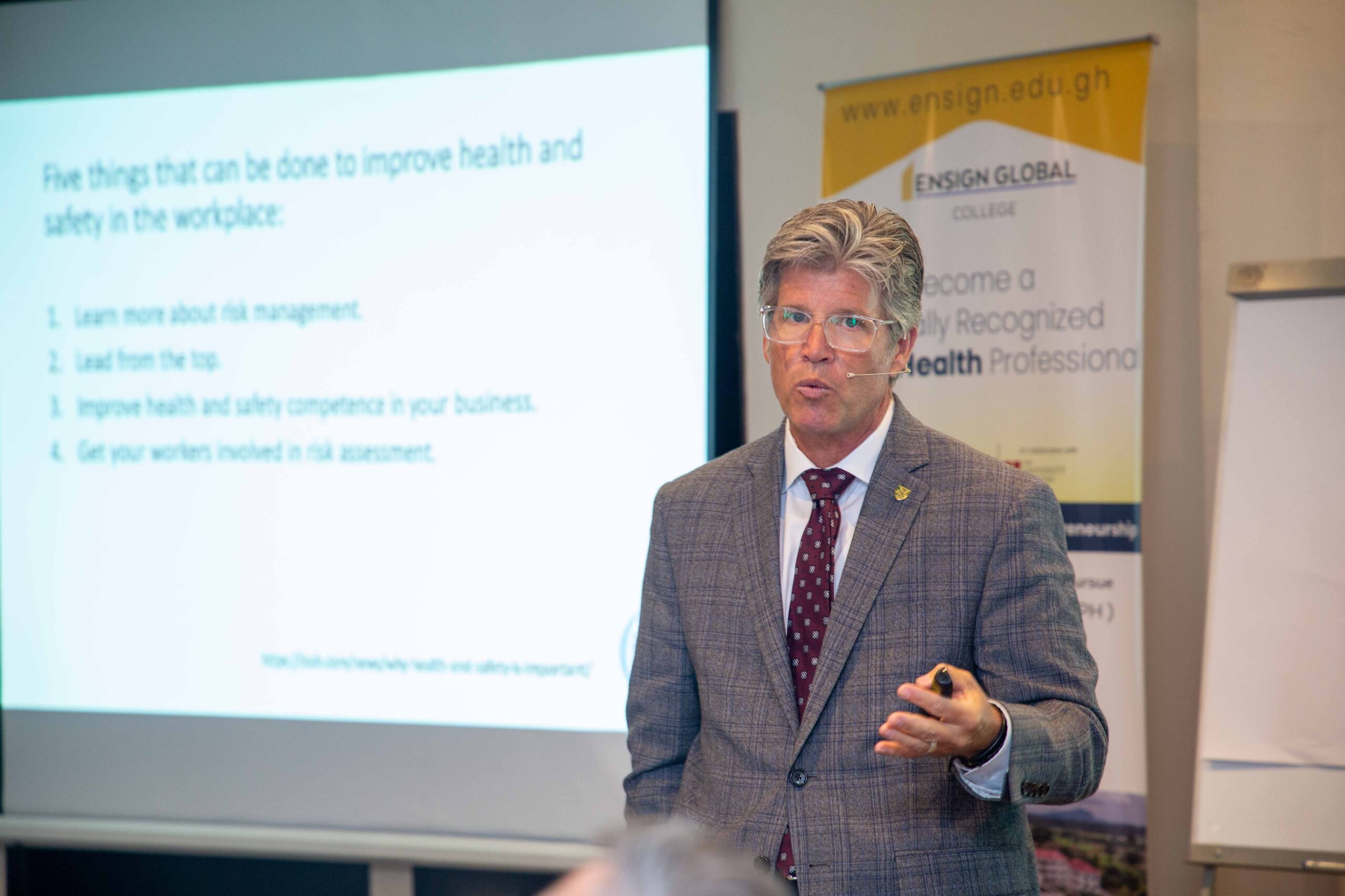
Water Pollution
Access to clean and safe drinking water is a challenge in many parts of Ghana. Pollution of water bodies by industrial effluents, agricultural runoff, and improper disposal of solid waste and sewage contribute to waterborne diseases such as cholera, typhoid, and diarrhea.
Sanitation
Inadequate sanitation facilities and poor waste management practices contribute to the spread of infectious diseases. Open defecation, improper disposal of solid waste, and lack of sewage treatment facilities are significant challenges in many parts of the country.
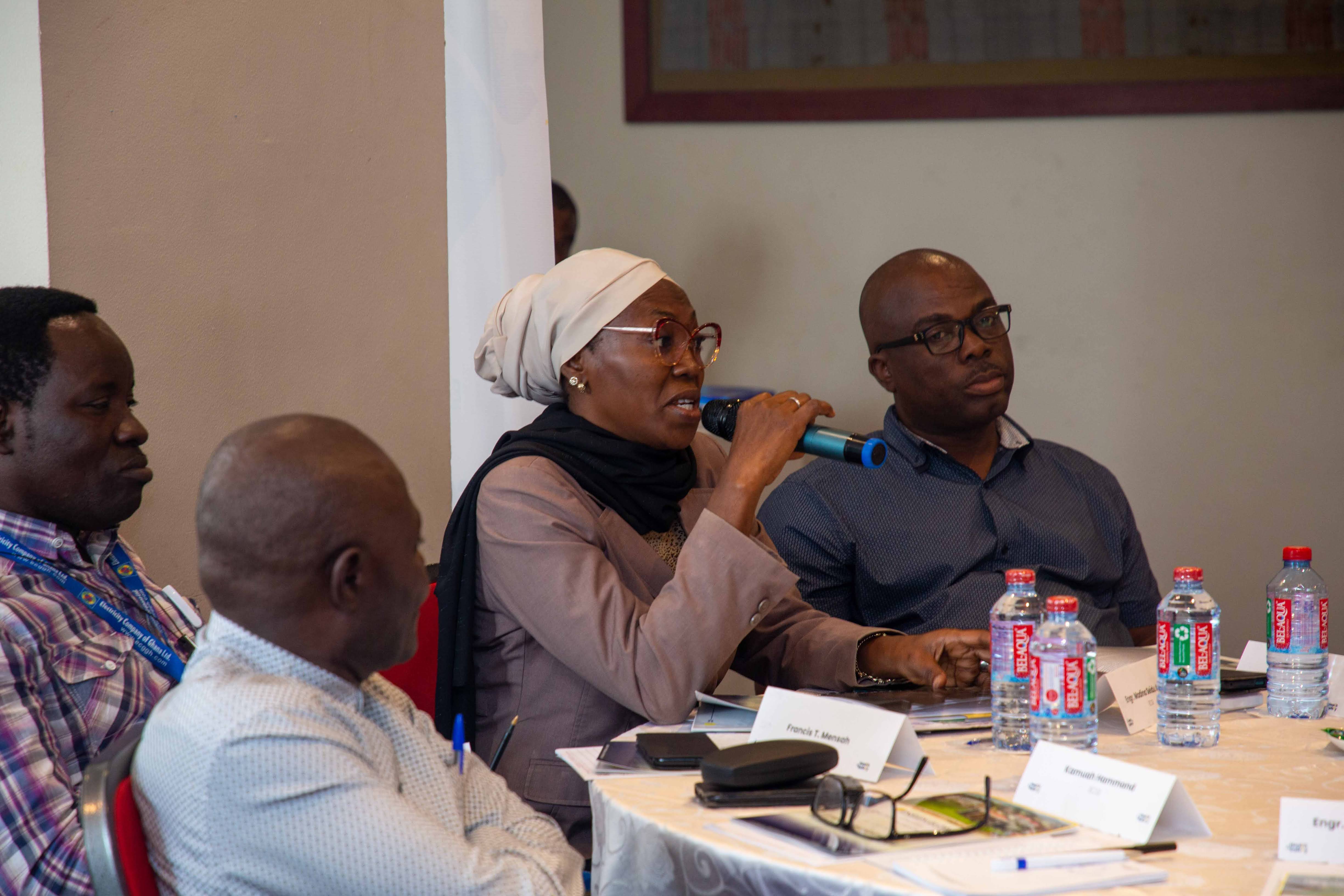
Vectorborne Diseases
Environmental factors—standing water, inadequate waste management, and deforestation—contribute to the spread of vectorborne diseases including malaria and dengue fever.
The 3-day workshop was convened at the Africa Regent Hotel in Accra, the capital of Ghana. My heart skipped a beat as I was introduced—the audience of almost 50 people were chief executives and their direct reports. I employed vintage Dyjack storytelling while weaving in principles and a call to action. Any concern I had about not resonating with the audience was quickly dispensed as individual attendees peppered me with questions that were imbued with genuine curiosity and were particularly centered on return on investment principles.
The second segment I unpacked was on training for adults. I shared the role of training in employee satisfaction and cost avoidance, the attributes of high-quality continuing professional education, and Bloom’s Taxonomy. We enjoyed a lengthy discussion on misinformation and disinformation. The third and last segment I led was on policy. I provided illustrations on the big “P” (corporate values and commitments), the little “p” (specific occupational and environmental health policies), and “p & p” (practices and programs that blow life into effective systems of practice).
By the end of the third day, the workshop had more attendees than when we started. How often does that occur? We finished with almost 60 attendees! Most critically, the conference team worked together to create a workshop pledge that each attendee signed as a reflection of their commitment to the health, safety, and economic prosperity of their communities. I was particularly delighted when the attendees requested that environmental health be included in the final declaration.
When I interviewed for my position at NEHA in 2015, I described three priorities:
- Treat environmental health as a contact sport.
- Remove the profession’s invisibility cloak.
- Go global with our message and be worldwide role models of professionalism.
I feel with this program we have made a step forward with the third priority, which complements our increasing worldwide footprint.
While there is no end to what we can accomplish if we don’t mind who gets the credit—in this case Dr. Alder, Dr. Akosa, and their dynamite staff at Ensign Global College deserve the credit for conceiving and hosting an exceptional program. We at NEHA wish them success in their efforts to improve the lives and well-being of workers and their communities throughout West Africa.
